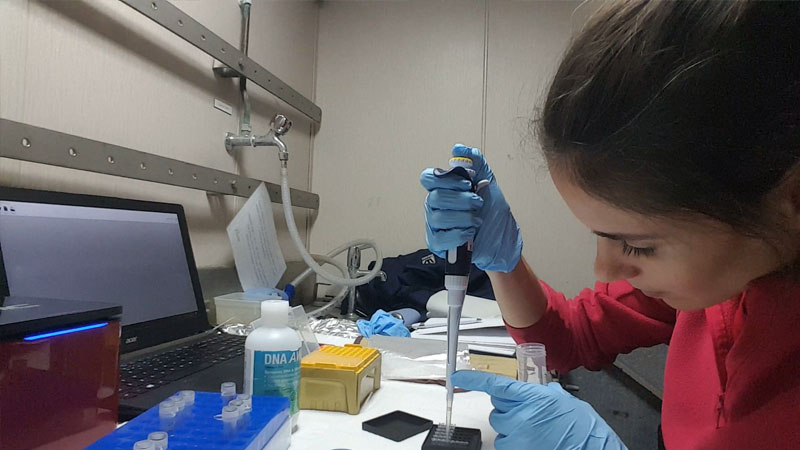When it comes to identifying seafood to catch instances of mislabelling, one of the greatest challenges pertains to the expertise required to use some of the available forensic tools and to the lack of universality of some of the faster easier methods. Many quick and easy portable identification methods are developed to discriminate between a few species which are often closely related and, if there is an interest in identifying more species, the methods need to be optimized, modified, or re-designed.
Members of the SEATRACES project have worked in collaboration with North American based company Thermagenix to develop and validate a quick and portable DNA-based tool that could be used for the authentication of a wide range of commercial fish species and could thereby be considered close to “universal”. What makes this method particularly unique is that the same set of probe-containing reagents is used to identify any species. In order for this method to be effectively utilized, the species of interest must be tested using the same set of reagents and added to a reference library.

A paper recently published in Food Research International in which SEATRACES members Marine Cusa and Stefano Mariani participated, demonstrated a 98% identification accuracy across 75 fish fillets from 18 different commercially important species. This indicates that the method is highly reliable and can be used with a variety of species. Another perks to FASTFISH-ID is its use of the Magnetic Induction Cycler (MIC) which is a small portable qPCR device that can take up to 48 samples in a single run. The MIC and a laptop are the only devices required for the authentication of samples as the method simply relies on real-time PCR analysis for species ID.
This method offers an exciting and promising tool that could offer a precise, portable, and easy to use technology to identify a wide variety of commercially available species.